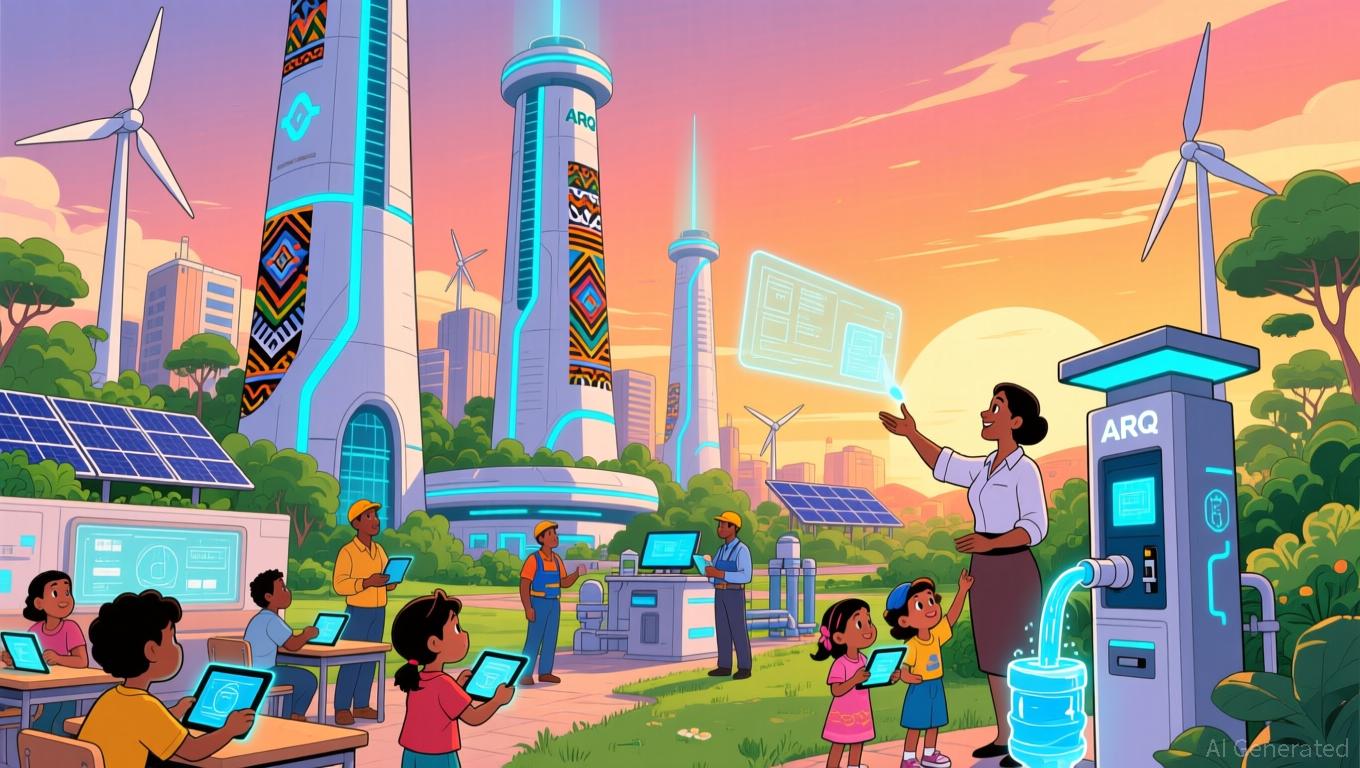Metaverse Technology Addresses Madagascar’s Real-Life Challenges Through Ambitious Collaboration
- AZTEQ Metaverse partners with Madagascar’s Presidency of the Reformation to deploy ARQ energy systems, metaverse platforms, and blockchain tokenization, aiming to transform infrastructure, economy, and education by 2026. - The initiative prioritizes energy and water infrastructure pilots, leveraging modular ARQ systems to modernize grids and reduce fuel imports, while creating thousands of jobs. - AZTEQ’s blockchain tokenization aims to democratize investment in agriculture and tourism, aligning with Mad
AZTEQ Metaverse, a pioneering Dutch company specializing in metaverse technology, has revealed a landmark alliance with Madagascar's Presidency of the Reformation. This partnership aims to introduce advanced solutions designed to overhaul the country's infrastructure, boost its economy, and enhance educational systems. Announced on November 24, 2025, the initiative draws on AZTEQ's
Set to commence in early 2026, the project will initially focus on pilot initiatives targeting energy and water infrastructure—areas where Madagascar has faced persistent challenges. The ARQ system from AZTEQ, a flexible and expandable solution for energy generation and distribution, is expected to upgrade the nation's power network and decrease dependence on imported energy sources. In addition, metaverse-based applications will support virtual education and teamwork, while

"This collaboration signals the beginning of a new chapter where technology enables communities to pursue fair growth and creativity," commented David Esser, who leads Labs at AZTEQ. Headquartered in Rosmalen, Netherlands, the company
This agreement highlights the increasing influence of metaverse technologies in driving economic advancement.
With its strengths in blockchain and immersive digital environments, AZTEQ stands out as a significant force in this evolving sector. The company’s
The project is set to move quickly, with pilot phases anticipated to start by early 2026. Should it succeed, this model could inspire other developing countries to adopt metaverse solutions for their own infrastructure and economic development.
Disclaimer: The content of this article solely reflects the author's opinion and does not represent the platform in any capacity. This article is not intended to serve as a reference for making investment decisions.
You may also like
Delaware Court Orders Edtech Founder to Pay $1 Billion for Failing to Meet Legal Obligations in Debt Case.
- Delaware court awarded $1.07B against Byju Raveendran for noncompliance in TLPL's $1B loan dispute involving Alpha Funds misdirection. - Judgment includes $533M principal, $540.6M penalties, and $10K/day contempt fines for refusing to disclose Camshaft LP transactions. - Raveendran's team claims denied due process, plans $2.5B counterclaims against GLAS Trust for alleged contractual and legal violations. - Case highlights cross-border governance tensions, with GLAS Trust alleging fund "roundtripping" whi
Bitcoin News Today: Bitcoin ETF Outflows Drive Price Drop, Yet New Inflows Hint at Potential Recovery
- Bitcoin faces extreme oversold conditions as record ETF outflows drive price declines, with $3.5B withdrawn in November 2025 alone. - Citi estimates $1B in outflows correlates to 3.4% price drops, creating self-reinforcing downward pressure on crypto markets. - Solana ETFs attract $531M through competitive staking yields, highlighting shifting investor priorities toward risk-adjusted returns. - Market analysts note early stabilization signs with $225M Bitcoin ETF inflows, though 36% price declines from O

OpenAI discovered through experience that Cameo had registered ‘cameo’ as a trademark
Google partners with Accel to search for India’s upcoming AI innovators